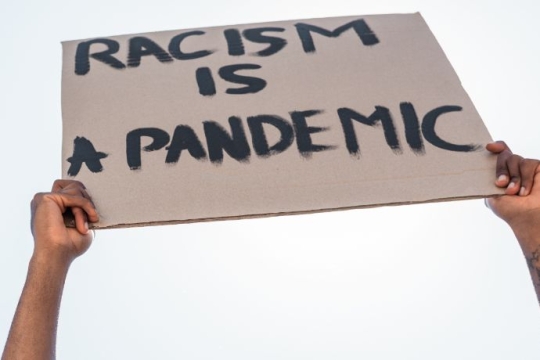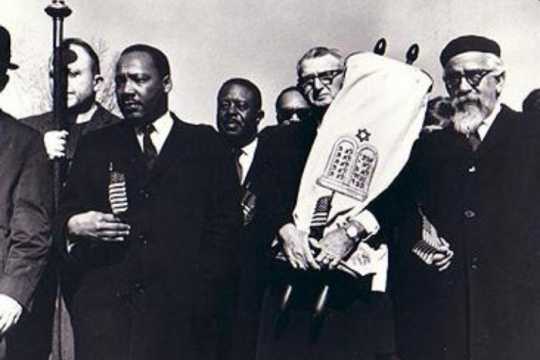
When I was a child, I remember saying to my mother about the Purim story, "Maybe Haman wouldn't have done anything if he'd known Queen Esther was Jewish." King Ahasuerus' easily manipulated nature laid the foundations for the story, while Haman's vociferous antisemitism drove the story forward.
Ahasuerus' incompetence and pre-occupation with his own pleasure rendered him the perfect bystander, likely enabling Haman to consolidate power as the King's right-hand minister. Haman uses a classic antisemitic trope of disloyalty when seeking Ahasuerus' permission for his plan to kill all the Jews of Persia: "There is a certain people, scattered and dispersed among the other peoples in all the provinces of your realm, whose laws are different from those of any other people and who do not obey the king's laws" (Megillat Esther 3:8). Ahasuerus signs off on Haman's plan, but later reneges that permission when Esther reveals her Jewish identity. The method Haman chose was unusual: as legal scholar and inventor of the term genocide Raphael Lemkin observed and later scholars corroborated, "the attempt to physically annihilate an entire group is usually the last choice genocidists make in a dynamic attempt to destroy a victim group."
Later in life, reflecting on this childhood question, I wondered: what could Haman have accomplished if he had been subtler in his bigotry? Instead of plotting to exterminate the Jews in Persia, what if Haman had implemented policies that effectively constrained or eliminated Jewish life?
Would Haman's plans have looked like President Roosevelt's Executive Order 9066, signed on February 19, 1942, which " authorized the evacuation of all persons deemed a threat to national security from the West Coast to relocation centers further inland." During World War II, over 100,000 people of Japanese ancestry, a majority of whom were American citizens, were stripped of their rights and interned in camps as potential enemies of the United States.
Would Haman's plans have been successful if they focused on erasing Jewish culture by forbidding the practice of Judaism, the reading of Torah, the speaking of Hebrew, and the celebration of Jewish holidays, eerily similar to the policies that China implemented before its most recent egregious human rights atrocities against the Uyghurs and other minorities? Or would Haman have pursued a slower course, driving the Jews out into miserable refugee camps like the Rohingya in Cox's Bazaar? Or would Haman have tacitly tolerated vicious hate speech from other sources against the Jews, like Hindu extremists' recent calls for violence against Muslims in India?
Perhaps Haman's plans would have included impediments to information like the banning or burning of books, something that is reentering the mainstream in the U.S. According to the American Library Association, 330 books were the subject of book ban requests in the fall of 2021, compared to 156 in all of 2020. Parents and school boards have been banning books at an unprecedented rate. Art Spiegelman's Maus, an award-winning Holocaust graphic novel, was banned by a Tennessee school board, which cited the use of swear words and depictions of nude mice as the reasons for the ban. After pulling certain library books off the shelves, some board members of the Virginia school district wanted to burn those books, and in Tennessee, a pastor led a livestreamed book burning.
In Survival in Auschwitz, Primo Levi wrote, "Monsters exist, but they are too few in number to be truly dangerous. More dangerous are the common men, the functionaries ready to believe and to act without asking questions." When information is controlled by or allotted to the very few, it compromises the general population's abilities to think and question. They cannot pursue any kind of informed action and therefore do not have any power. This is why recent book bans and burnings in the U.S. are dangerous: because it is about controlling who can or cannot have access to information that prompts further critical thinking. It is about who is allowed the ability to question and by extension who can take informed action.
Perhaps most relatable of all, the Eternal does not figure in the Purim story. The Eternal is alluded to but has no active role, when Mordecai tells Esther that she must act to save her people, that she alone is in the best possible position to help: "And who knows, perhaps you have attained to royal position for just such a crisis" (Megillat Esther 4:14). A fateful choice is left in Esther's hands; her bravery sees her through.
While we may not have a royal title like Esther, many of us living in the U.S. and Canada have privileges others do not. We have a fateful choice to learn, think, and act about the issues that matter to us, even as narrow-minded functionaries attempt to restrict us from exercising those abilities. Evil does not happen in a vacuum; it happens when people make the deliberate choice to act or fail to act without thinking or questioning. Evil does not just happen in some obscure place far away; it happens right here in our own democracy. It is incumbent on us to learn, think, and act upon the plethora of injustices we see in our world.
And as to what issue or cause you should start with? As Rabbi David Saperstein, RAC director emeritus said, "It doesn't matter. Choose what the passion of your heart is and start working on that. Never let the argument that you can't do everything justify not doing anything."
Here are some suggestions on where to start:
Join the RAC's Every Voice, Every Vote Campaign.
Encourage the U.S. Senate to immediately vote to fill the position of U.S. Special Envoy to Monitor and Combat Antisemitism.
Check out our Uyghur action page for resources and ways to help the Uyghurs.
Related Posts

America Needs a Just and Equitable Immigration Policy: If Not Now, When?

Owning Our Racial Equity Work Ahead: Three Things We Must Do

